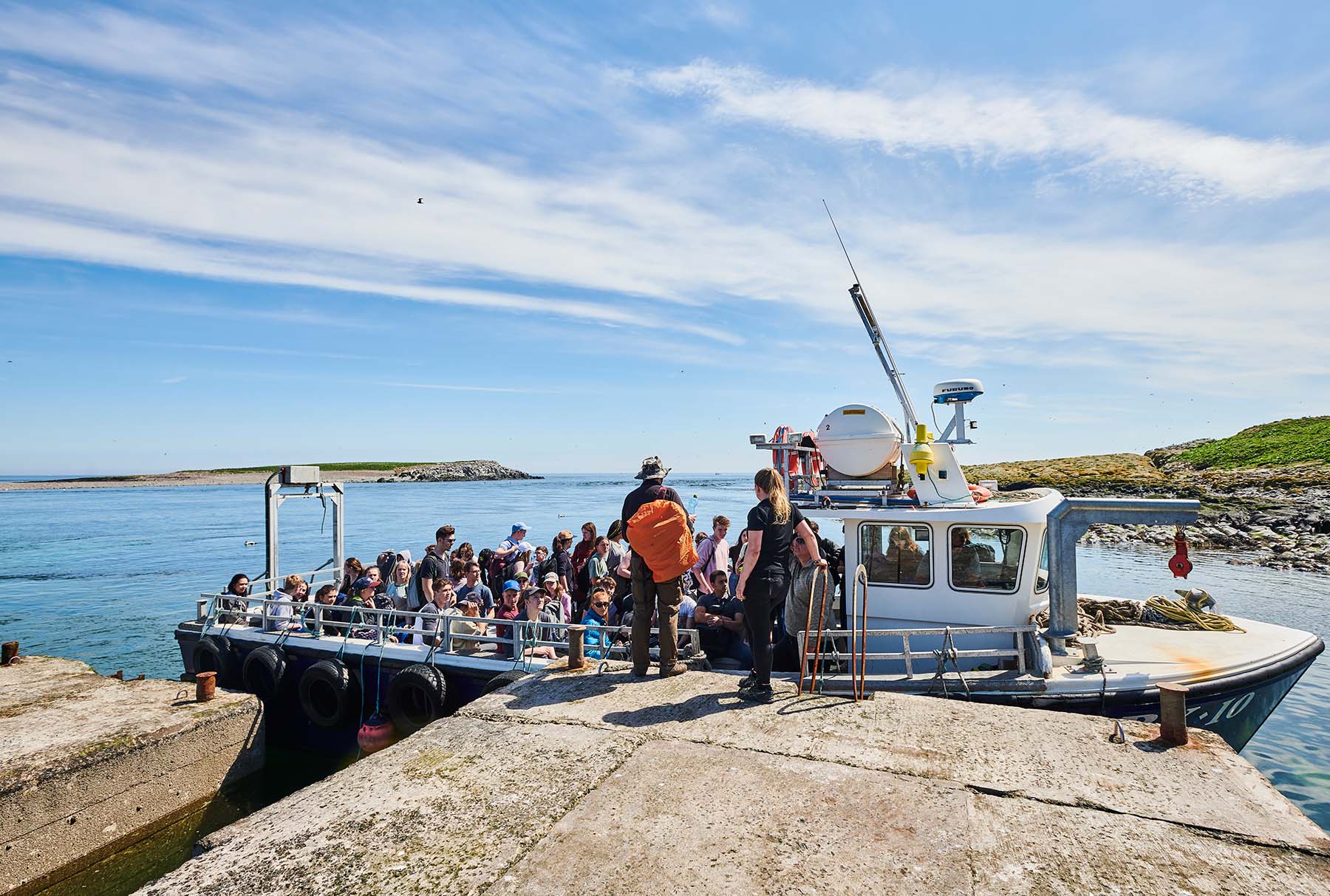Marine Engineering: Your Learning Experience
We’ve designed our curriculum with input from the Marine Engineering industry. Our courses will equip you with the technical and professional skills to become an engineer of tomorrow.
How you’ll learn
You’ll learn by design and work on integrated sustainable projects as a member of a multidisciplinary team. From marine vehicles to ship design, marine technologies to energy applications, you’ll develop your technical and professional skills and build experience through lab work, projects, site visits and problem-solving.
You’ll be taught alongside our Newcastle University Business School. You’ll build an understanding of business, and the legal requirements, in an engineering context.
We have a unique Engineering Project Team. They are a multidisciplinary student-led team, who take on real life engineering challenges for fun.
You’ll also have access to an industry sponsored Robotics and Autonomous Systems Laboratory throughout the year.
Lake District field course
During your first-year induction week, you’ll join a unique residential field course in the Lake District.
You’ll learn to work with your fellow student engineers and gain an understanding of engineering principles.
It's the perfect opportunity for you to engage, get to know each other and form friendships.
Learn with support
We care for our students as individuals right from application stage beyond graduation. We'll support you throughout your learning journey, so you can get the support you need, when you need it.
As one of our Student Engineers, you’ll benefit from:
- an extended induction programme
- a dedicated Engineering Student Wellbeing Advisor
- a personal tutor
- a student buddy system
- a staff student committee
- international and exchange tutors
- our award-winning Careers Service
- our school employability support
The University also provides student support and wellbeing services, and our Students’ Union has a range of resources available.
Engage with industry
You'll engage with industry from the start of your journey at Newcastle University. You’ll develop the skills and knowledge demanded by the engineering sector.
You’ll gain industry exposure to professional practice through:
- guest lectures
- industrially linked projects
- placements
- professional events
- skills modules
- work shadowing
- summer experiences
You can also take part in a work placement, working at any organisation in the world, with support from our dedicated team.
Work placements take place between stage 3 and 4 and are typically 9 – 12 months long. You’ll put your learning into practice and develop your professional expertise.
Study abroad opportunities may also be available, but it will depend on your degree and eligibility.
Oceans for Opportunity careers event
Our annual Oceans for Opportunity careers event is a chance to engage with our industrial partners.
You’ll get an insight into the marine and naval sector and build your professional networks.
It’s also the perfect chance to explore future placements at your favourite company, as well as potential graduate opportunities.
Our marine facilities
Our world-leading research facilities include:
- £1m research vessel, The Princess Royal
- cavitation tunnel to test models of propellers, submarines and more – only two of a kind in the country
- towing tank
- combined wind, wave and current tank
- hydrodynamics laboratory with wave-making and electronic recording equipment
- engineering laboratories, including diesel engine testing facilities
- dedicated computer clusters running specialist marine design software
- specialist technical library and archive
Tour our facilities
Our facilities video tour takes you around campus and shows you some of our state-of-the-art equipment, work spaces and more.
